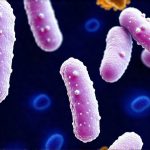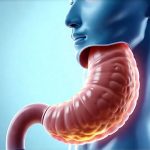The modern Western diet, characterized by its abundance of processed foods, refined sugars, and limited fiber intake, presents a significant challenge not just to individual health but also to the intricate ecosystem within us – our gut microbiome. For decades, nutritional guidance often focused on macronutrient ratios, largely overlooking the silent influence of these trillions of microorganisms residing in our digestive tracts. Now, research is revealing that subtle components within seemingly innocuous dietary habits can profoundly disrupt this delicate balance, leading to a cascade of health consequences. Understanding these disruptions isn’t about demonizing specific foods; it’s about cultivating awareness and making informed choices to support microbial diversity and functionality for long-term wellbeing.
The sheer complexity of the microbiome makes identifying disruptors particularly challenging. It’s not always about what we add to our diets, but also about what we remove, and how processing methods alter food composition in ways that affect microbial communities. Many modern dietary trends – even those marketed as ‘healthy’ – can inadvertently contribute to imbalances if their underlying impact on the gut is not fully considered. This article will delve into some of these subtle disruptors, exploring how they operate and offering insights into more microbiome-friendly approaches to nutrition. It’s about shifting from a simplistic view of food as fuel to recognizing its role in cultivating a thriving internal ecosystem.
Emulsifiers & Artificial Sweeteners: Hidden Disruptors of Gut Harmony
Emulsifiers are ubiquitous ingredients added to processed foods – everything from salad dressings and ice cream to baked goods and margarine – to improve texture, shelf life, and palatability. They work by binding water and oil together, preventing separation. While seemingly harmless, growing evidence suggests that certain emulsifiers can significantly alter the gut microbiome composition. Specifically, they have been shown to disrupt the mucus layer lining the intestinal tract. This layer serves as a crucial barrier protecting against harmful bacteria and maintaining gut homeostasis. – When the mucus layer is compromised, it allows pathogenic bacteria to come into closer contact with the intestinal wall, potentially triggering inflammation and increasing gut permeability – often referred to as “leaky gut.” – Different emulsifiers have varying degrees of impact; carrageenan, polysorbate 80, and carboxymethylcellulose are among those currently under scrutiny. Recognizing red flags in recurrent digestive issues is important when assessing these impacts.
Artificial sweeteners, similarly prevalent in diet sodas, sugar-free candies, and many ‘low-calorie’ products, present another subtle but potent disruptor. Initially marketed as a solution for weight management and diabetes control, research is revealing their complex interaction with the gut microbiome. Unlike sugars that are readily metabolized by both host cells and microbes, artificial sweeteners often pass through the upper digestive tract largely undigested. This means they reach the colon where they interact directly with microbial communities. – Studies have indicated that artificial sweeteners can shift the balance of bacterial populations, reducing beneficial bacteria like Bifidobacteria and Lactobacilli, while potentially promoting the growth of less desirable species. – These shifts can lead to impaired glucose tolerance and metabolic dysfunction, ironically counteracting the intended benefits of sugar reduction. The effect isn’t necessarily about replacing sugar with nothing; it’s about replacing a natural food source for microbes with something entirely artificial that alters their function. Recognizing subtle food reactions is key in identifying sensitivities.
Dietary Fiber Deficiency & Its Ripple Effect
The dramatic decline in dietary fiber intake is arguably one of the most significant, overarching disruptors in modern Western diets. Our ancestors consumed an estimated 50-100 grams of fiber daily; today, the average individual struggles to reach even half that amount. This isn’t just about regularity – it’s about starving the beneficial bacteria in our gut that rely on fiber as their primary food source. Fiber is not digested by human enzymes but is fermented by microbes in the colon, producing short-chain fatty acids (SCFAs) like butyrate, propionate, and acetate. These SCFAs are essential for gut health, immune function, and overall metabolic wellbeing. – Butyrate, in particular, serves as a primary energy source for colonocytes – the cells lining the colon – and possesses anti-inflammatory properties. A lack of fiber leads to reduced SCFA production, weakening the intestinal barrier and increasing susceptibility to inflammation. Understanding gut microbiome diversity can help address these issues.
The types of fiber also matter. Modern diets tend to emphasize soluble fiber (found in oats, apples, and beans) while neglecting insoluble fiber (found in wheat bran, vegetables, and whole grains). Both are important, but insoluble fiber provides bulk and promotes gut motility, further contributing to a healthy microbiome environment. Furthermore, the diversity of fiber sources is crucial; different microbes specialize in fermenting different types of fiber. A monotonous diet lacking a wide range of plant-based foods limits microbial diversity and reduces overall SCFA production. – The consequences extend beyond digestive health, impacting immune function, mental wellbeing (the gut-brain axis), and even chronic disease risk. Changes in stool form during low-sodium diets can be similar to those observed with fiber deficiencies.
The Role of Food Processing & Sterilization
Food processing techniques, while designed to enhance convenience and shelf life, often strip away essential nutrients and microbial food sources. Refined grains, for example, have had their bran and germ removed, drastically reducing fiber content and micronutrient density. Similarly, pasteurization and sterilization – common in dairy products and packaged foods – eliminate not only harmful bacteria but also potentially beneficial microbes that can contribute to gut health. – While eliminating pathogens is essential, excessive sterilization may inadvertently reduce the microbial diversity present in fermented foods, impacting their probiotic potential.
The addition of preservatives and artificial additives during processing further complicates matters. These compounds aren’t naturally found in food and can exert unintended effects on the microbiome. – It’s important to note that not all processed foods are inherently detrimental; minimally processed options like frozen vegetables retain much of their nutritional value. The key is to prioritize whole, unprocessed foods whenever possible and be mindful of the extent of processing involved in packaged products.
Antibiotic Use & Its Lasting Impact
While antibiotics are vital for treating bacterial infections, their widespread use – both in humans and animals – has profound consequences for the gut microbiome. Antibiotics don’t discriminate between harmful and beneficial bacteria; they indiscriminately kill a broad spectrum of microbes. This disruption can lead to a loss of microbial diversity, creating an opportunity for opportunistic pathogens to flourish. – Even a single course of antibiotics can alter the gut microbiome for months or even years, with long-term implications for immune function and metabolic health.
The impact is not limited to the individual taking antibiotics; antibiotic resistance genes can be transferred between bacteria in the gut, potentially reducing the effectiveness of future treatments. Furthermore, early childhood exposure to antibiotics has been linked to an increased risk of developing allergies, asthma, and other chronic conditions. – Responsible antibiotic use – only when medically necessary and under the guidance of a healthcare professional – is crucial for mitigating these risks. Probiotic supplementation after antibiotic treatment may help restore some microbial balance, but it’s not a substitute for avoiding unnecessary antibiotic exposure. Can extreme diets harm gut microbiome health?
The Importance of Fermented Foods & Prebiotics
Incorporating fermented foods into your diet can be a powerful way to support gut health and counteract the negative effects of modern dietary habits. Foods like yogurt (with live cultures), kefir, sauerkraut, kimchi, kombucha, and miso contain probiotics – live microorganisms that can colonize the gut and contribute to microbial diversity. – However, it’s important to choose fermented foods with active cultures and avoid those that have been pasteurized after fermentation, as this process kills beneficial bacteria.
Alongside probiotics, prebiotics are essential for nourishing existing beneficial microbes in the gut. Prebiotics are non-digestible fibers found in foods like onions, garlic, leeks, asparagus, bananas, and oats. They serve as food for beneficial bacteria, promoting their growth and activity. – Combining probiotic-rich fermented foods with prebiotic sources creates a synergistic effect, known as synbiotic nutrition, further enhancing gut health and wellbeing. A diverse diet rich in both probiotics and prebiotics is one of the most effective strategies for cultivating a thriving microbiome and mitigating the disruptive effects of modern Western diets. Recognizing subtle food triggers can also aid in making dietary adjustments. Additionally, understanding early morning indigestion might point to underlying issues impacting gut health.


















